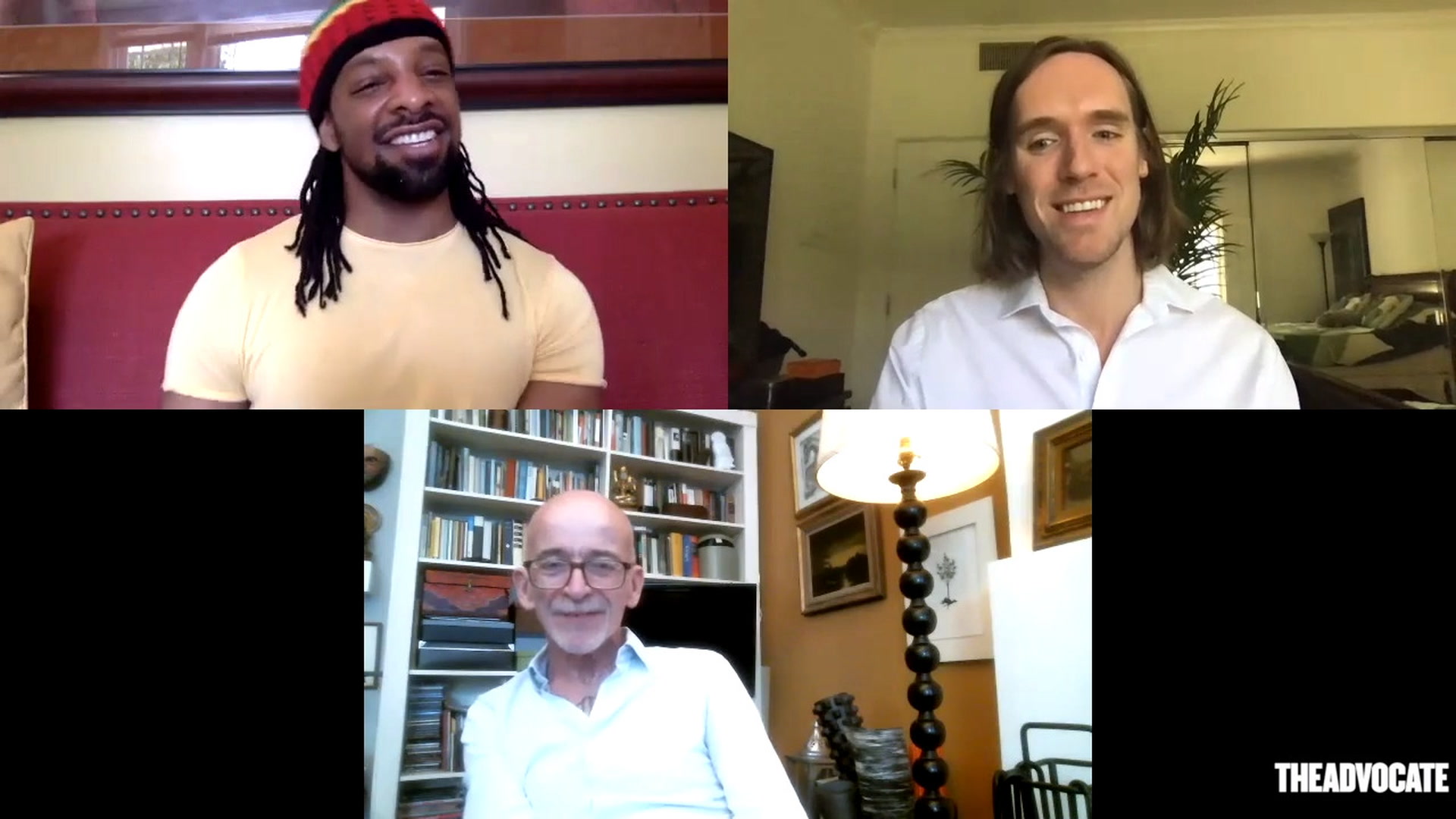Books
Why Walt Whitman, 'America's Poet,' Was a Queer Pioneer

Mark Doty
What Is the Grass author Mark Doty and Pulitzer Prize winner Jericho Brown discuss the gay poet's legacy.
July 03 2020 7:00 AM EST
dnlreynolds
By continuing to use our site, you agree to our Privacy Policy and Terms of Use.

What Is the Grass author Mark Doty and Pulitzer Prize winner Jericho Brown discuss the gay poet's legacy.
In What Is the Grass: Walt Whitman in My Life, author Mark Doty detailed a sexual experience with a man from Provincetown named Frank. In the midst of the encounter, he looked up at the face of his lover to observe "another man with short gray hair and beard, the same half-smile, but with the visionary dazzle of starlight in his eyes."
"I was, quite calmly, looking into the face of the Walt Whitman of 1856, the year of the Brooklyn daguerreotype, the picture in which he seems to be slowly and with a great inner radiance returning to earth from wherever it is he's been," Doty wrote.
In a recent Zoom session with The Advocate and a former student of his, Pulitzer Prize-winning poet Jericho Brown, Doty revisited the significance of the encounter. "I'm not claiming that was Walt Whitman's ghost, but it was an experience of a profound connection with a spirit of a person who is in a way alive in those words," Doty said. "Whether he manifests on the earth plane or exists as a ghost or not, who cares? There he is in that poetry. He has done something to intervene in time by making himself last."
What Is the Grass is a study of Walt Whitman and his oeuvre, most notably his 19th-century poetry collection, Leaves of Grass. But for the award-winning gay poet Doty, textual analysis of the great American bard required a personal analysis, which necessitated this kind of spiritual contact.
"I didn't want to write a book of literary criticism without self in it, without a passionate point of view," Doty said. "I wanted to do something I did not know how to do, which was to ... read my life through the lens of the poems."
The result is a Whitman-esque lifting of the "veils" that separate sex from spheres like spirituality, academia, and public life. Doty's analyses of "Song of Myself" and "I Sing the Body Electric" parallel some of his most private, intimate experiences, be they an erotic encounter with a spirit or his first time having sex with another man -- unbeknownst to his wife at the time. Referencing his forays into potential taboos, Doty refers to one chapter as "the unwritable."
"I found a lot out about my teacher!" joked Brown. "I have a bit of a sense of pride that you were willing to do all of that work in making use of your own life, your real behind-closed-doors life, for the sake of the ways in which it intersects back to spiritual and that which is Whitman-ian."
Labels like gay, queer, or bisexual were nonexistent in Whitman's era. But his appreciation of the male form is apparent in his work -- be it observing "twenty-eight young men bathe by the shore," or "the black of his polish'd and perfect limbs." Whitman "loves members of his own sex" through his poetry, said Doty, which was a groundbreaking step in representation. His work spoke to and inspired a generation of queer men from that era, among them writers Oscar Wilde and Bram Stoker. In fact, Stoker based the character of Dracula on Whitman.
"Culturally, he seems to be a really central figure in the evolution of what it means to be queer, how we negotiate that, how we take pride in it," Doty said.
Whitman, who lived from 1819 to 1892, also negotiated competing desires for a writer of his time. He was avant-garde, but he longed to be beloved in his lifetime -- and nationalist poems like "O Captain! My Captain!" about Abraham Lincoln's assassination were embraced by the mainstream. "The poem is terrible," bemoaned Doty. But Whitman was also considered "scandalous" in his day, so much so that he was fired from his job as a government clerk for his work.
However, it was "his praise of heterosexual coupling and his portrayal of women when sexual desire is just thought to be awful" that clashed with conservative society, said Doty. As for his queer themes, "nobody seems to notice except for people who were looking for it, who knew how to read it."
Brown noted the power of Leaves of Grass -- and Whitman's avant-garde work -- with this in mind. "That creates, through writing, a world of community. And that's why you take the leap. That's why you take the risk," he said.
And Whitman is still singing to us. "People who have sex as Whitman did read his poems. And you know it, you recognize your kinship with him," Doty said. "It's very difficult to explain that to a historian, or to many literary critics. But I think there is such a thing as bodily knowledge of reading, that somehow the words communicate the veracity of an experience."
"It's amazing how many biographies there are that just turn somersaults to say, 'Oh, but we don't really know. Or it was passionate friendship' ... And they work against that kind of felt knowledge," added Doty.
"I didn't have the understanding of that as an early reader of Whitman, but I think I also hadn't had that much sex," Brown said with a laugh. His appreciation for the poet arrived "after I finished school and I actually began to experience just how big the world is."
Listen to the full conversation below, and pick up a copy of What Is the Grass: Walt Whitman in My Life.

Charlie Kirk DID say stoning gay people was the 'perfect law' — and these other heinous quotes